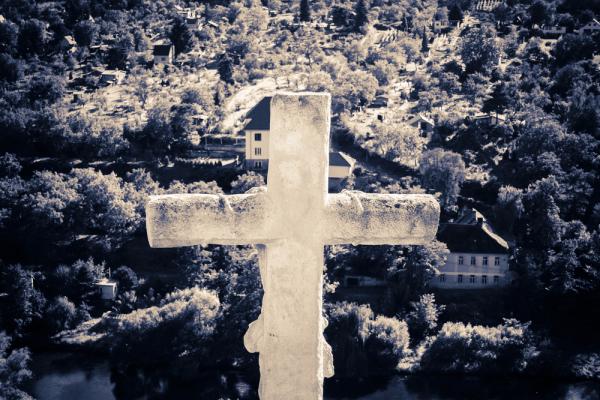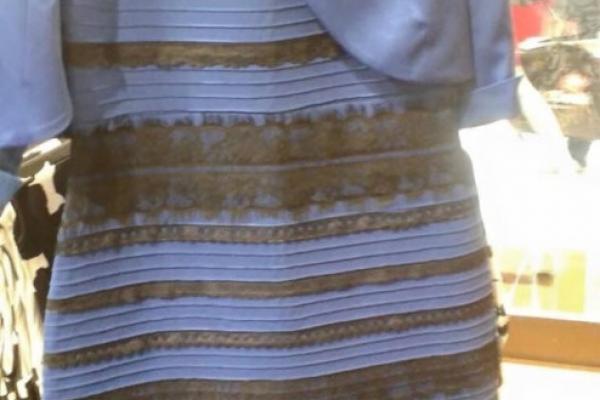For the second time in as many months, a state court has sided with a group of breakaway Episcopalians, ruling that they can keep their property after leaving the national church in 2008 over sharp differences on homosexuality and the authority of Scripture.
Judge John P. Chupp of the 141st District Court in Tarrant County, Texas, ruled March 2 that more than 60 parishes in greater Fort Worth can retain their property and remain independent of the Episcopal Church.
“We are grateful for the ruling in our favor,”said Bishop Jack Iker, the former Episcopal bishop of Fort Worth who’s now affiliated with the Anglican Church in North America, which formed in 2009 as a rival to the Episcopal Church. “It’s clear that both church laws and Texas laws have been rightly applied to this dispute.”
While still a part of the Episcopal Church, Iker was a leader of the church’s small conservative wing that opposed the 2003 consecration of an openly gay bishop and blessings for same-sex unions. He’s also criticized the theology of Presiding Bishop Katharine Jefferts Schori as unorthodox, and he refers women seeking ordination to a neighboring diocese.
The life and legacy of Pauli Murray has been getting a lot of attention from the media lately. Articles on Salonand NPR have highlighted Murray’s trailblazing legal work around the intersections of race and gender in America. Murray’s scholarship and activism around ‘Jane Crow’ — the overlapping discrimination faced by women of color — arose from her own experience as an African-American woman in early 20th century and her arguments resonate with seemingly even greater force today.
Less talked about, but equally needed in our present time, is an examination of her work as a priest and a theologian — and, critically, how her understanding of religious and nonreligious concepts provided the means, methods, and motivation for her own activism.
Indeed, in a life filled with accomplishments, it was perhaps her final achievement that she prized most personally. In 1973, Murray became the first female African-American Episcopal priest.
A lifelong Episcopalian, Murray’s faith had always fueled her work for racial and gender equality. A small example from her experience at the famous 1963 March on Washington exemplifies this commitment. In typical Murray fashion, she attended with two groups that she felt represented her commitment to civil rights. Marching first with the local American Civil Liberties Union chapter, she then veered off and found the delegation from St. Mark’s-in-the-Bowery parish, her home church in New York, to watch the “oncoming multitudes” peacefully demand racial equality in an unequal country.
Pastor Stan Mitchell’s announcement that his evangelical GracePointe Church would fully affirm gay members met with a standing ovation from some, stunned silence from others, but everybody prayed together quietly at the end of it.
A month and a half later, Mitchell routinely receives emails inviting him to kill himself, often including the assurance they were sent in love from other Christians. Half of his 12-member board has left, along with half the average offering and about a third of the weekly attendance — once at 800 to 1,000 people.
He’s met with dozens of disenchanted members and plans to see dozens more, apologizing almost compulsively for his handling of the issue. But there’s no going back, he says. He doesn’t even want to.
One of his biggest fears is that talking publicly about what happened at GracePointe could discourage countless other evangelical pastors who he says are ready to make the same move.
“I’m watching LGBT people finally make peace with themselves because they couldn’t get away from the authority of Scripture and what they thought it said about them,” said Mitchell, 46.
“The upsides — my God, they’re everywhere in this.”
Most of my life, I’ve heard people preface some sort of argument they want to support with the preface, “The Bible clearly states…”
I’ve come to believe, however, that this is a phrase Christians should eliminate from their vocabulary, for a number of reasons:
- There’s no such thing as un-interpreted scripture.
Legendary preacher and theologian Fred Craddock famously noted that, even if one believes the Bible is inerrant, perfect, or directly handed to humanity from God, there’s still no way to glean an absolute understanding from the texts. After all, we all are imperfect, and as such all that we perceive flows through this imperfect vessel. The good news is that the Bible is full of imperfect vessels still being used for incredible good. So maybe rather than on absolutes, we’re meant to focus more on growth, improvement, and restoration.
- We can use the Bible to make nearly any claim we want.
Did you know “the Bible says” that if my man-jewels are squished irreparably for any reason, I’m barred from heaven (No one whose testicles are crushed or whose male organ is cut off shall enter the assembly of the Lord. Deuteronomy 23:1)? And have you considered that the Bible condones mass killing, or what some might consider genocide (Make ready to slaughter his sons for the guilt of their fathers; Lest they rise and posses the earth, and fill the breadth of the world with tyrants. Isaiah 14:21), or even infanticide (Isaiah 13:15-18)? I can use the Bible to justify slavery (wouldn’t be the first time), keeping a sexual concubine, or to prove why eating shrimp condemns me to hell.
- I’ve never met ANYONE in my life who follows the Bible completely from beginning to end.
I could swear the protesters from Westboro Baptist wear shirts that are a poly-cotton blend, and that some of the fiercest Bible-thumpers out there enjoy a good shrimp cocktail from time to time.
As well as being a good surfer and a great mate, I believe Hillsong’s pastor Chrishan Jeyaratnam is one of the finest preachers in Australia. His teaching on “Your Will Be Done” in the Lord’s Prayer: Lent series is exceptional.
“And what does the Lord require of you? To act justly and to love mercy and to walk humbly with your God.” [Micah 6:8]
Too often, perversions of our world’s religious traditions make the daily news for their violence, corruption, greed, and prejudice. Meanwhile, authentic representatives of those traditions are often busy doing good — good that goes largely unnoticed. That’s why I’m glad that a diverse group of religious leaders are sharing about seven ways authentic people of faith can work together to make a better world.
I served as a progressive evangelical pastor for 24 years, and during those years, I saw the evangelical movement struggling with its identity. The best versions of evangelicalism, whether they were labeled conservative or progressive, always took seriously passages like Matthew 25, where Jesus said, “For I was hungry and you gave me food, I was thirsty and you gave me drink.” Those verses continue to inspire evangelicals of all persuasions to engage in life-giving mission — and in particular, to engage constructively in the world in seven positive, reconciling, and healing ways.
If you invest just a few minutes over the next seven days thinking and speaking up about these seven ways to participate in our world, I believe by week’s end you will be moved to action and in it find a richer, more faithful life:
A couple of folks I really respect – Kate Gould of Friends Committee on National Legislation (aka, the Quaker Lobby), and Jim Wallis of Sojourners – were recently on the O’Reilly Factor. For those of you who don’t watch cable news, this is a television program where Bill O’Reilly basically screams at people and incites hatred of anything non-white, non-rich, and non-Republican. I normally don’t watch the show. But when I heard that Kate and Jim were going to be talking, I tuned in.
I knew almost immediately this wasn’t going to be good. It’s Bill’s program, so he gets to frame the question. Here’s what he asks: Do Christian pacifists have a solution for stopping ISIS?
It’s the wrong question.
If you thought I was going to be one of those bloggers who was above using the recent viral #dressgate as blog fodder, you would be wrong. In fact, as soon as the dress started trending, I knew I would be writing about it because it so perfectly encapsulates my message.
By now you have seen the dress, and gone through the stages of denial, bewilderment, and acceptance of how your perception of color differs from the next person. You may have even read The Science of Why No One Agrees on the Color of This Dress. But you may not yet have had a faith writer exegete the profound spiritual significance of the dress. Do not fear, I am here to deliver. Below is a simple Christian Guide to #Dressgate:
A. If you see blue/black: you are a solid Christian. Like a rock, you are steadfast and unchanging. Because rocks are often black.
B. If you see white/gold: we all know only true Christians can see white/gold, as gold signifies the color which paves the streets of heaven, and white, the color of angel’s robes.
C. If you see BOTH colors: you are one of those progressive, liberal, hippie types who is so politically correct you can’t even exclude a color set of a dress.
D. If you can only see one set of colors, but you’re so convinced you can trick your brain into seeing the other that you will spend an entire span of family dinner twitching your face, blinking and winking furiously, twisting your head at ridiculous angles at the photo, then you are just my husband.
I’m C, of course. The freaky dress does crazy mental magic on my brain, switching colors on me spontaneously, forcing me to existentially question every life decision I have ever made with my faulty, cognitive synapses.
And I’m kidding. Please, don’t be sending me hate mail about the true Christian thing, I’m kidding.
Our Lady of Vilnius Church, built by families of immigrant Lithuanian longshoremen, started out a century ago as a beloved worship space. Now, it’s a coveted real estate asset.
In 2013, six years after the church was closed, it was sold for $13 million to one of the city’s biggest developers. The following year, that company flipped it like a pancake to another developer for $18.4 million.
Now the yellow brick church near the entrance to the Holland Tunnel awaits demolition to make way for an 18-story luxury apartment house.
“It makes you cynical,” says Christina Nakraseive, a former parishioner who supported the legal case against the church closing until it was rejected by the state’s highest court. “It seems like it’s all about real estate.”
The issue has taken on added significance since the Roman Catholic Archdiocese of New York, citing declining attendance, rising costs, and a looming priest shortage, announced plans to merge scores of parishes and close dozens of churches this year.
A recent survey found that 57 percent of Republicans agreed that Christianity should be established as the United States’ national religion.
Not only would this violate the clear wording of the Constitution and the intention of the founders to keep religion and government separate, it also raises a difficult quandary.
Whose Christianity?
Of the estimated 1,500-plus Christian denominations in the U.S., which flavor of Christianity would emerge as the national standard?
Would it be conservative Christianity or liberal Christianity? Would it be Roman Catholic, Protestant, Orthodox, or nondenominational? Would it be church-centered Christianity or a more personal flavor, such as house communion? Would it be the 1950s-style neighborhood-church Christianity that many older churchgoers yearn for, or a contemporary megachurch?








